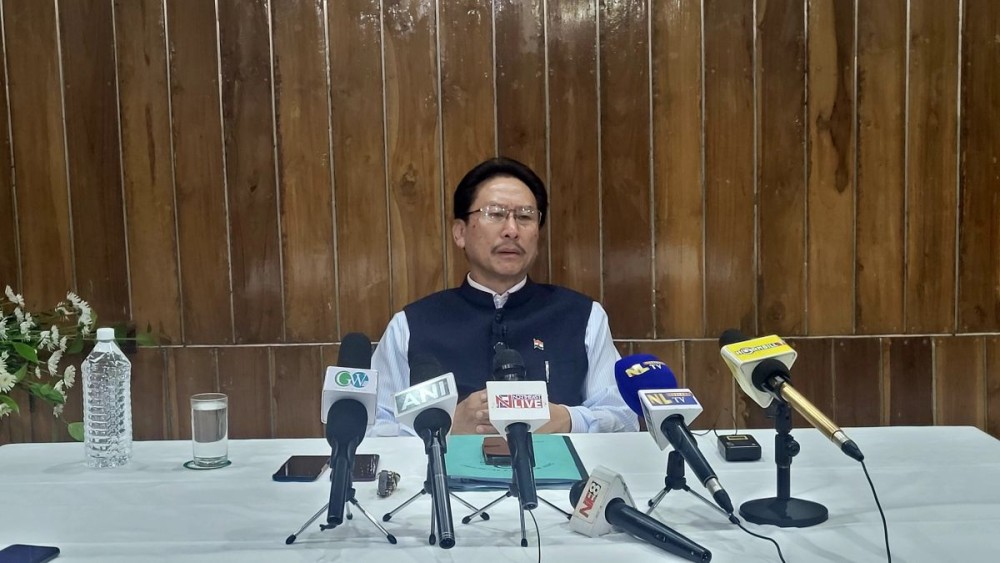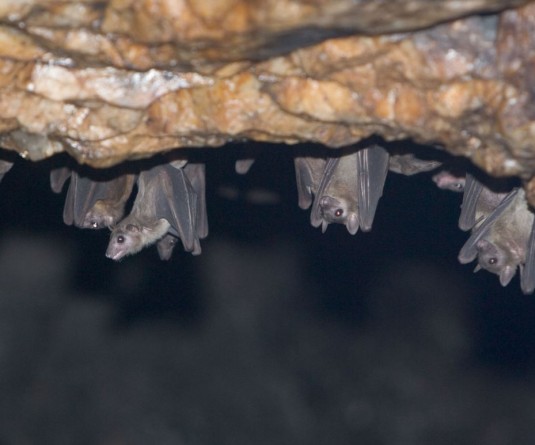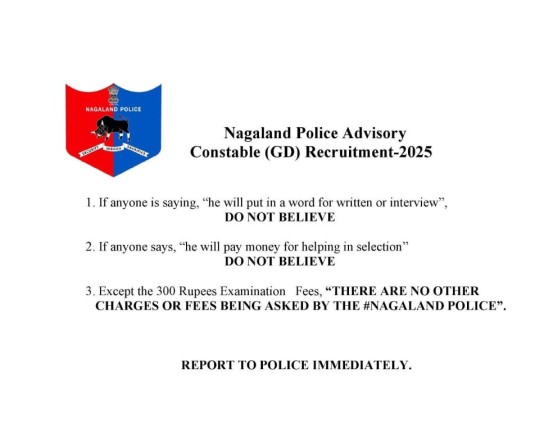Government Spokesperson and Minister for Power, KG Kenye addresses the media in Kohima on August 6. (Morung Photo)

State Cabinet to seek clarity from MHA
Morung Express News
Kohima | August 6
The Nagaland Government today stated that talks on the Frontier Nagaland Territory Authority (FNTA) are moving towards a positive resolution, but also expressed concern over emerging reports that the proposed FNTA might be placed under a new constitutional provision.
If a new entity is created under Article 371, as reported, it would alter the State’s position, noted Government Spokesperson and Minister for Power, KG Kenye, addressing the media here at Hotel Japfü following a State Cabinet meeting on August 6.
The issue of finance, executive and legislature is minor, which can be negotiated, but if a new entity is created under Article 371, it would alter the State’s position—“that would be a world of difference and the State would effectively have nothing to do with it anymore,” he stated.
Kenye also pointed out that the Eastern Nagaland People’s Organisation (ENPO) had earlier assured no bifurcation of the State.
Accordingly, he asserted that the State Government is not agreeable to any proposal that implies bifurcation.
To this end, he informed that all the members of the Cabinet have decided to take a collective visit to the Union Ministry of Home Affairs to “hear from the horse’s mouth” if this was actually proposed by the MHA.
When asked if the Centre’s early approach to exclude the State Government from the talks was an indication of its motive to create division among the people of the State, Kenye acknowledged that this has created apprehension over the years.
Nevertheless, if the Union Government clarifies that the FNTA will remain under Article 371(A), then the apprehension is unjustified, the Spokesperson maintained.
At the same time, Kenye expressed optimism that the talks are “inching towards a final agreement or settlement,” but noted that the process has been shrouded in confidentiality, with access to developments restricted to a select few.
“This started in 2010 and for about 13 years, we were in the dark. It was only a bilateral talk between the Government of India and the ENPO... the State was always sidelined. We were equally curious and concerned to know the status of the talk,” Kenye said.
It has been only about a year since the State became involved in the process, which has since evolved into a ‘tripartite, trilateral’ talk, he added.
Cabinet ‘satisfied’ with ILP implementation
Meanwhile, Minister Kenye maintained that the Cabinet has expressed satisfaction over the progress in implementing the Inner Line Permit (ILP) regime, particularly along Nagaland’s western borders with Assam, including Dimapur, Chümoukedima and Niuland districts.
“Government agencies, local administrations, and civil society organisations are working hand in glove to assist, complementing, supplementing and supportive in this issue, and the results have been very encouraging,” he held.
However, the Spokesperson admitted that there are certain areas where ‘we’ have to slowly cover.
He also requested the people of the State to not take law into ‘our’ hands, and not to be vindictive, too strict and stringent, and know how to implement this law and use it in a reasonable way.
“The consciousness has dawned on our people, which in itself is a very big success, and unless we use these provisions, our land and our people will not be protected,” Kenye added.





